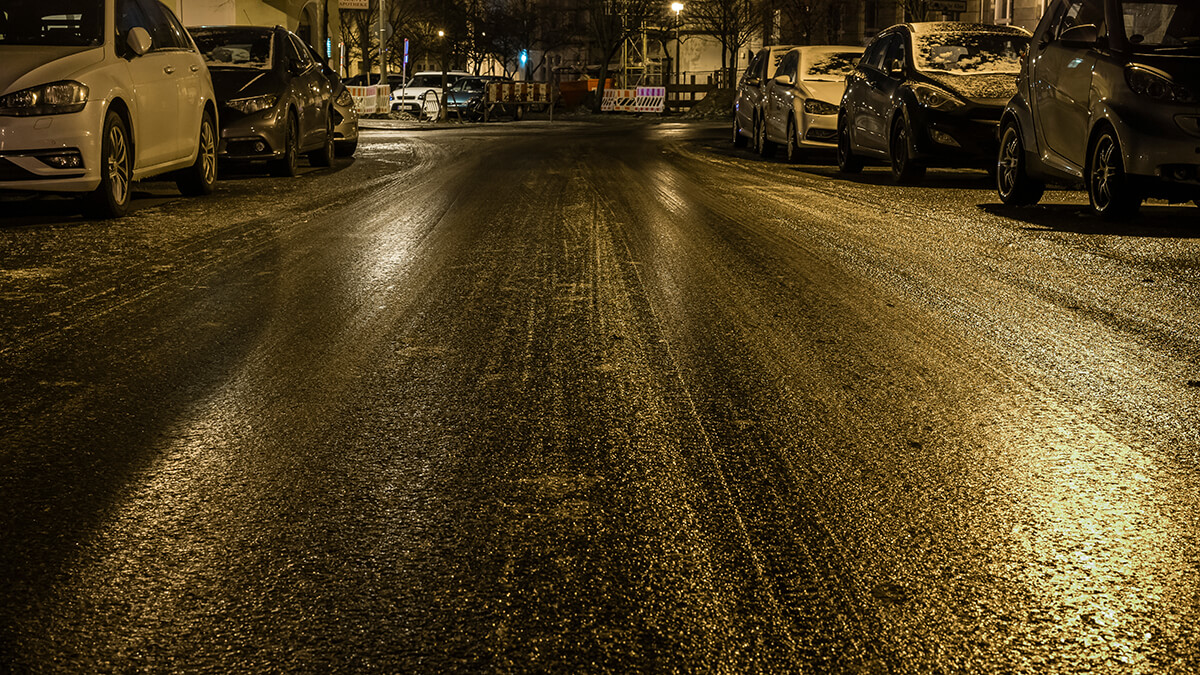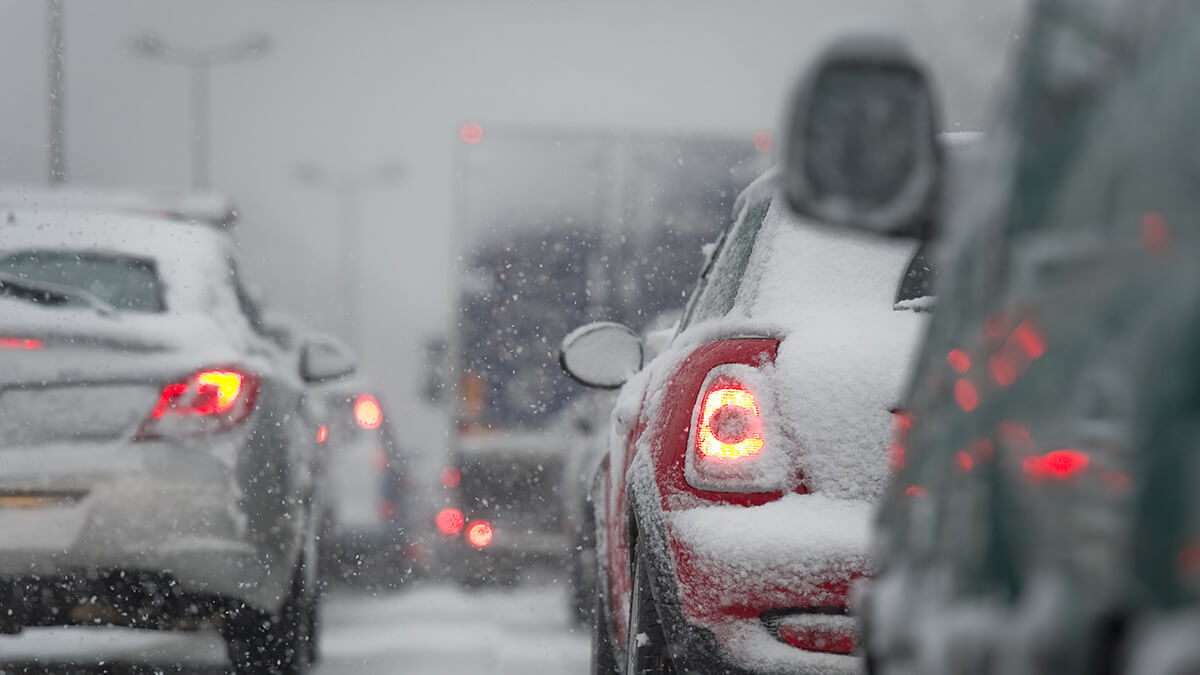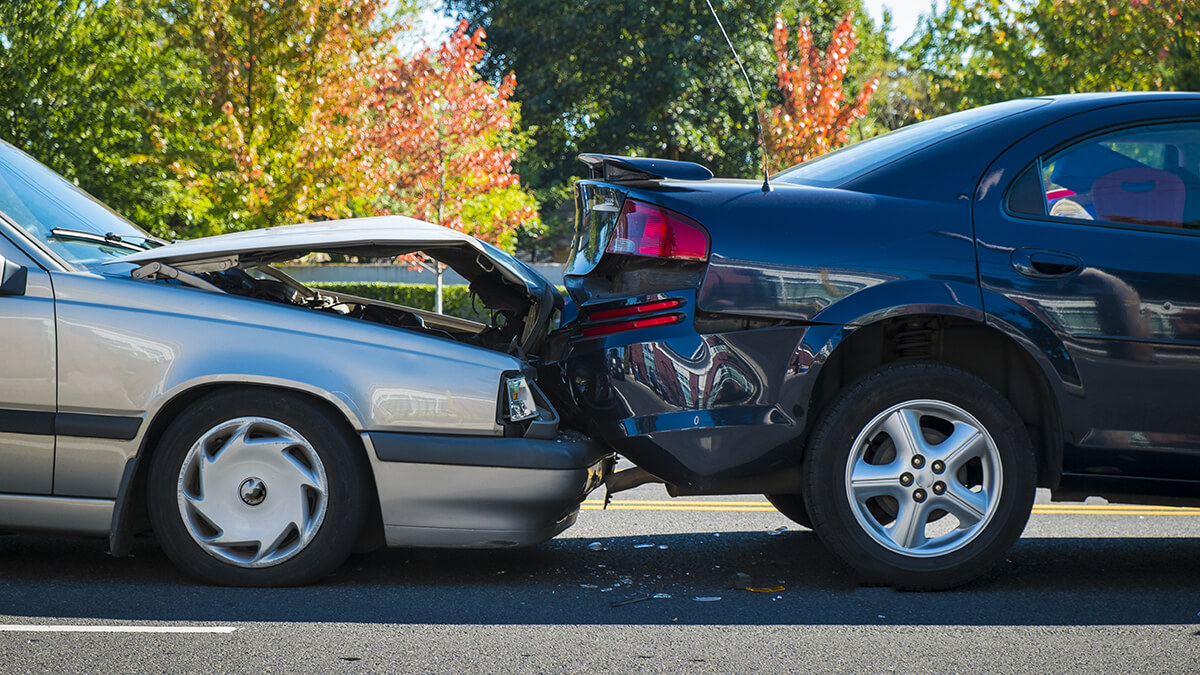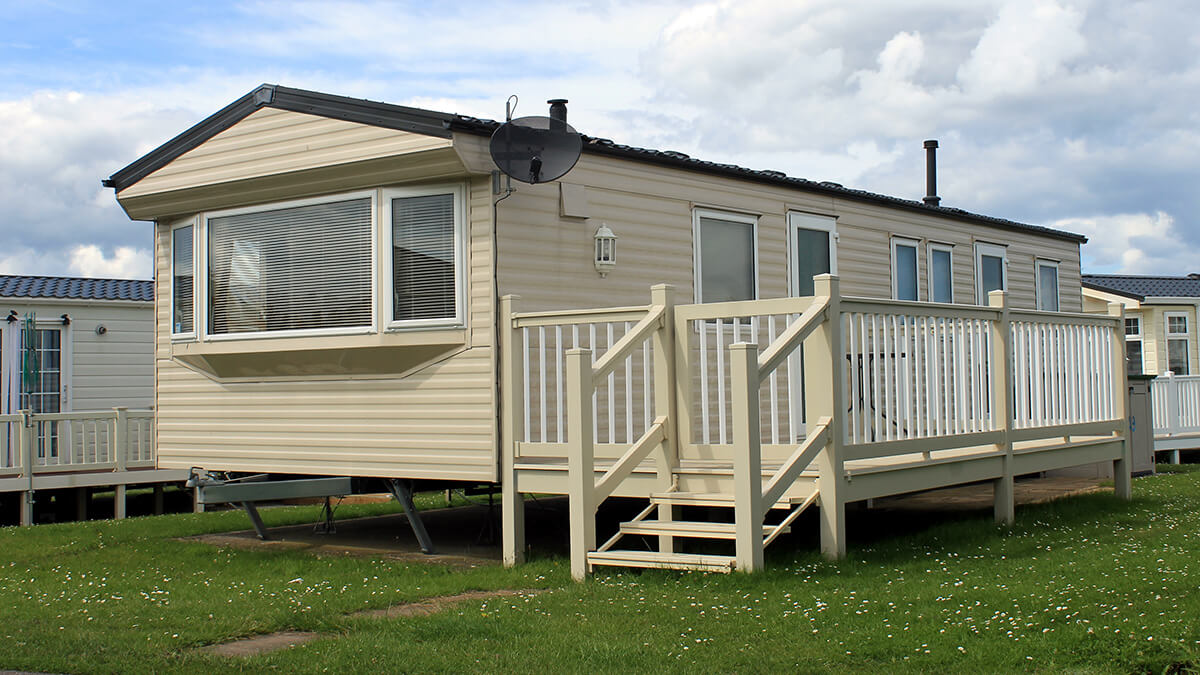Driving on black ice

Although snow can make winter driving difficult, it's not the real threat. Icy roads are one of the top causes of car accidents in the United States, and cause hundreds of deaths each year. It's easy to lose control of your car when the roads are icy, and is difficult to gain control again. There aren't any fool-proof ways to avoid black ice, but you can certainly protect yourself by understanding and knowing how to deal with this seasonal issue!
Know where to expect black ice
Black ice is generally formed when a light rain or drizzle falls on a road surface that is below freezing, and is most common at night or in the early morning when temperatures are at their lowest. AccuWeather suggests to watch out for bridges and underpasses, road areas shaded by the sun, or low-lying areas that may have standing water or run off from nearby melting snow banks.Look for black ice (when you can)
If lighting conditions are right, a driver might be able to spot ice on the road. If the majority of the road you are driving on appears to be a dull color except for one section that appears to be shiny, odds are, the glossy area is ice. Keeping headlights on might help provide that visible shine.Check your tire tread
Use the penny test to check treads — if you can see Lincoln's head, get new tires! If not, you're good to go. For more car preparation tips like this one, follow our blog to the Winter Auto Safety Checklist.
Here are some tips to help you regain control of your car if you're sliding on black ice:
- Stay calm.
- Don't make sudden movements, you would only lose more control.
- Do not hit the brakes.
- Try to keep the steering wheel straight.
- If you feel your car sliding right or left, make a gentle turn in the SAME direction you feel you're going.
- De-accelerate slowly by lifting your foot from the gas pedal.
- If you can, shift into a lower gear.
- If you still cannot gain control of your car, try to steer into an area with low impact like a snowbank or empty field.
- Find a safe location to park your vehicle as soon as possible.
Hopefully you now feel better prepared to brave the winter ahead!





